HVS discusses the main hotel transactions that took place in 2023 and looks at the trends in single-asset and portfolio transactions over the years.
Industry Insights
We have written thousands of articles about all aspects of hospitality, including valuations, investing, lending, operations, asset management, and much more.
2023 European Hotel Transactions
HVS discusses the main hotel transactions that took place in 2023 and looks at the trends in single-asset and portfolio transactions over the years.
Outpacing and Evolving: Metro Atlanta Hotel Supply Growth
The hotel supply across Metro Atlanta has grown significantly since the onset of the pandemic, particularly as compared to the rest of the nation. In this article, we provide an overview of notable supply and demand trends, both recent and on the horizon.
Tulsa Tourism Is on the Rise
Tulsa’s tourism industry has experienced a strong recovery from the COVID-19 pandemic. Tulsa experienced record-breaking revenue from tourism in 2022 and 2023, encouraging the local chamber of commerce to focus on sustaining tourism and community-building for the foreseeable future.
Seattle Hotel Market: A Shining Beacon of the Pacific Northwest
In 2023, Seattle was a beacon of renewed strength in the Pacific Northwest given its vibrant concert and sports event calendar, record-breaking cruise season, and $1.9-billion expansion of the Seattle Convention Center. As a result of these factors, Seattle was one of the nation’s best-performing hotel markets during the summer.
Bakersfield's Vibrant Growth & Developments Ahead
The hotel market of Bakersfield, California, thrives year-round due to the area’s robust industrial business and strong manufacturing and distribution industry. Moreover, the city and the surrounding area are poised for major growth, with upcoming developments that will enhance the market’s appeal and attract further demand.
Orlando Hotel Market: Recovery and Evolution
Orlando was one of the first of the top 20 U.S. hotel markets to recover from the pandemic. Going forward, Orlando's hotel demand is expected to be bolstered by the addition of new tourist attractions in the market, increased flight capacities, greater inbound international travel and group bookings, and the recovery of the business segment.
Brooklyn Continues to Blossom in the Post-Pandemic Period
All five New York City boroughs were heavily affected by the COVID-19 pandemic. The strength of Brooklyn as a commercial center is partly attributed to the downtown core, distinct neighborhoods, public green spaces, and ease of access to/from Manhattan. These factors, combined with the availability of developable land, have continued to boost the Brooklyn market, especially in the post-pandemic period.
Boston Hotel Market Update: Ten Things to Know
Boston is back. The three key demand channels have returned to an approximation of their pre-pandemic levels (conventions and business travel up, leisure down), and the city’s RevPAR has improved to third in the nation, supplanting Miami and various West Coast rivals. Here are ten things to know about the city.
HVS Global Hotel Industry: 2023 Recap and 2024 Outlook
As 2023 ends, regional HVS leaders across the globe take a look back at how the global hotel industry fared this year. Overall, operating metrics shined brightly, with revenue growth achieved in most global markets, while investment activity cooled. The investment market is expected to improve in 2024.
Charleston, SC: Making & Preserving History
Europeans first settled in the city that would become Charleston over 350 years ago. Charleston’s rich history is one of the drivers of its thriving tourism sector, which tallied 7.68 million visitors in 2022. In the hospitality industry, Charleston continues to make history, while local initiatives are also making strides to preserve it.
Industry Insights
We have written thousands of articles about all aspects of hospitality, including valuations, investing, lending, operations, asset management, and much more.
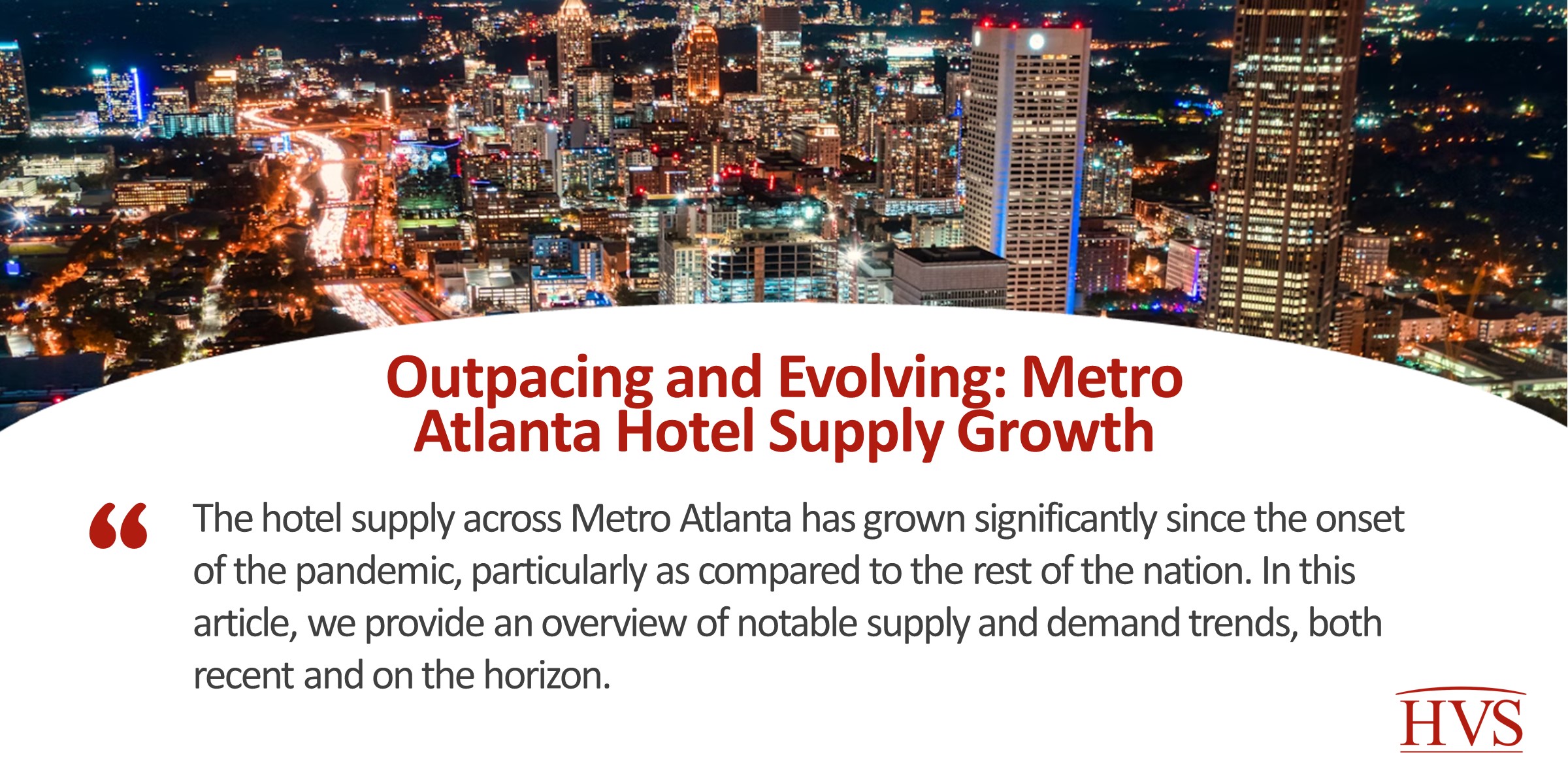
The hotel supply across Metro Atlanta has grown significantly since the onset of the pandemic, particularly as compared to the rest of the nation. In this article, we provide an overview of notable supply and demand trends, both recent and on the horizon.
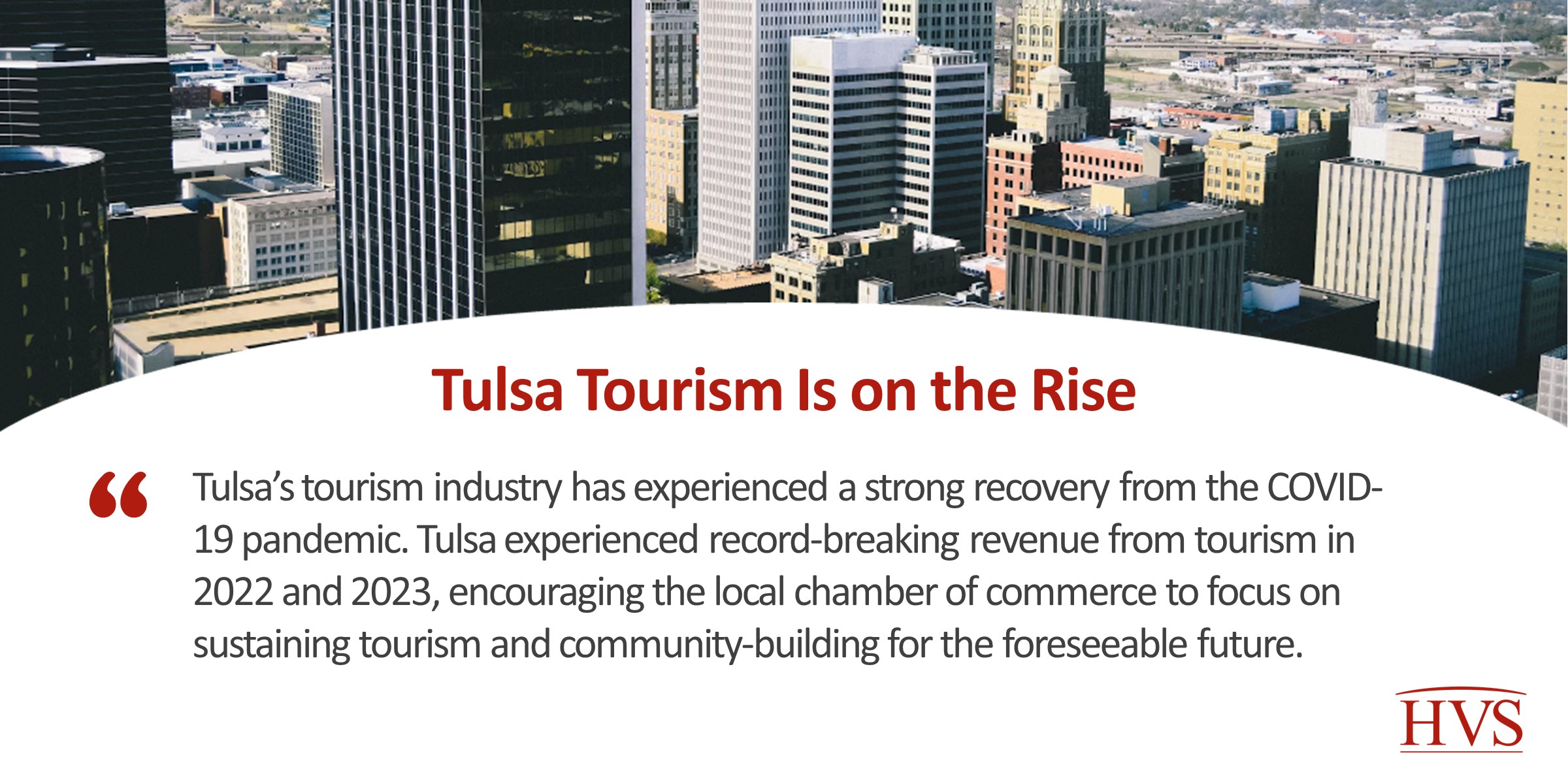
Tulsa’s tourism industry has experienced a strong recovery from the COVID-19 pandemic. Tulsa experienced record-breaking revenue from tourism in 2022 and 2023, encouraging the local chamber of commerce to focus on sustaining tourism and community-building for the foreseeable future.
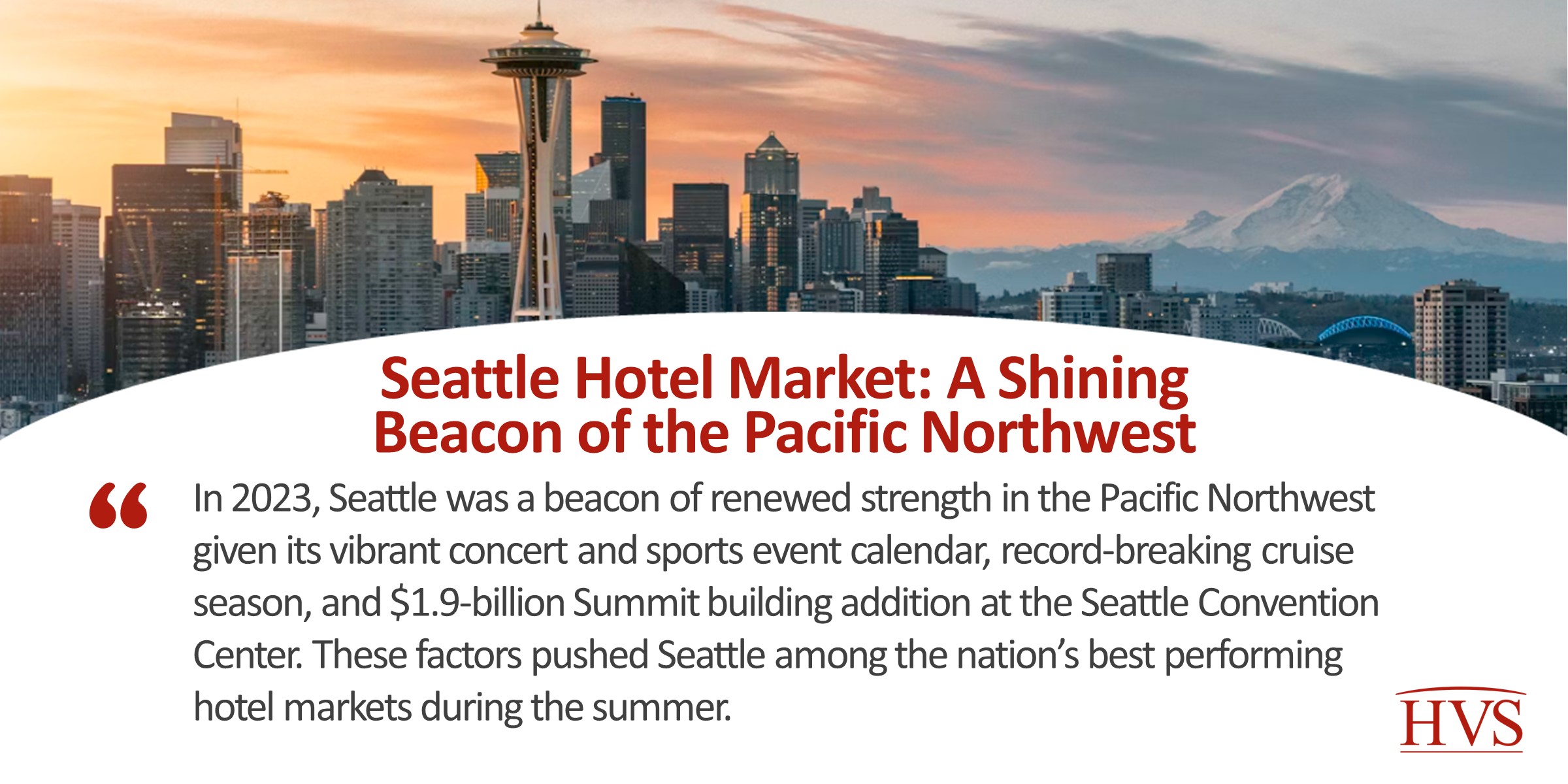
In 2023, Seattle was a beacon of renewed strength in the Pacific Northwest given its vibrant concert and sports event calendar, record-breaking cruise season, and $1.9-billion expansion of the Seattle Convention Center. As a result of these factors, Seattle was one of the nation’s best-performing hotel markets during the summer.
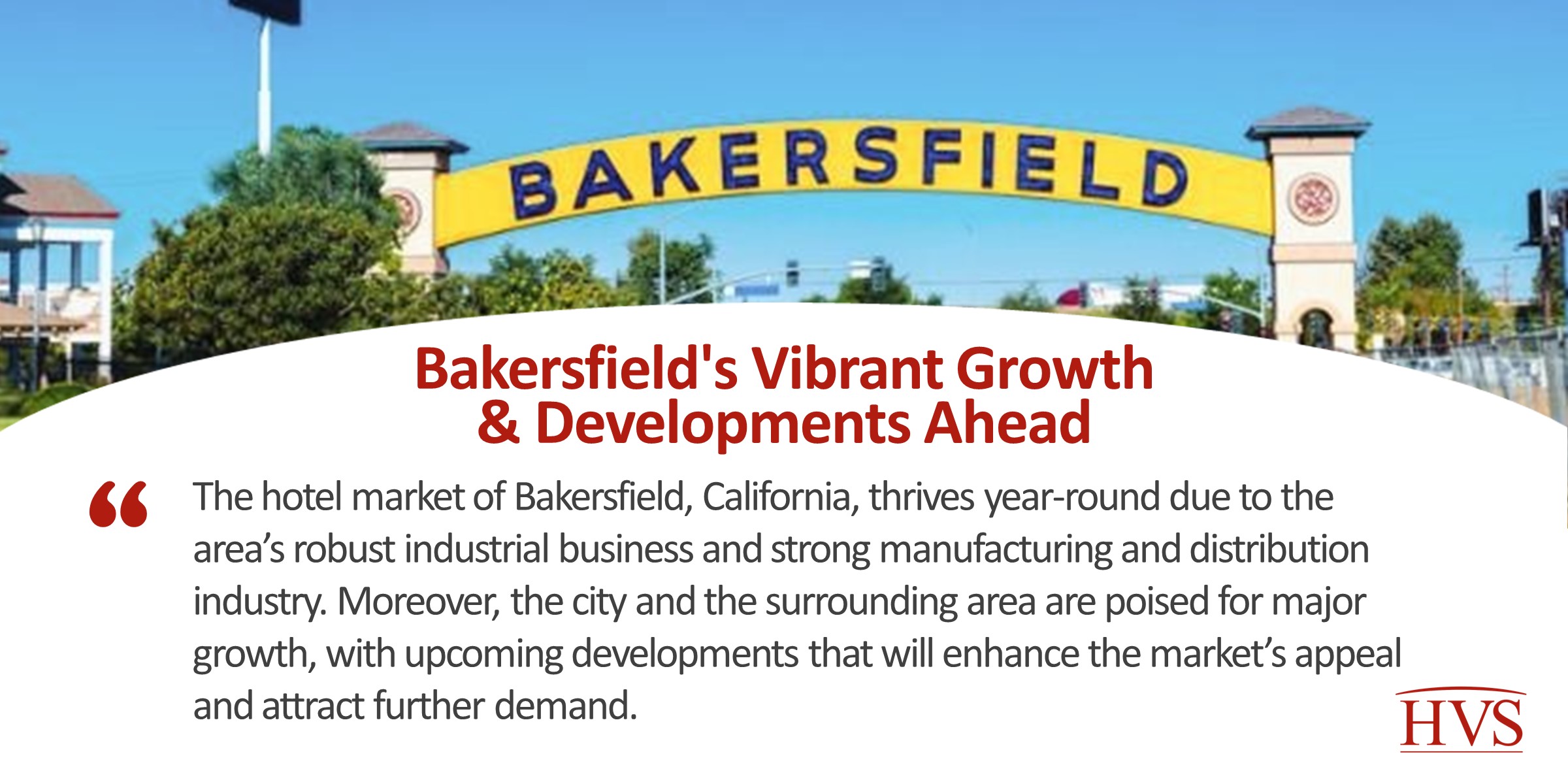
The hotel market of Bakersfield, California, thrives year-round due to the area’s robust industrial business and strong manufacturing and distribution industry. Moreover, the city and the surrounding area are poised for major growth, with upcoming developments that will enhance the market’s appeal and attract further demand.
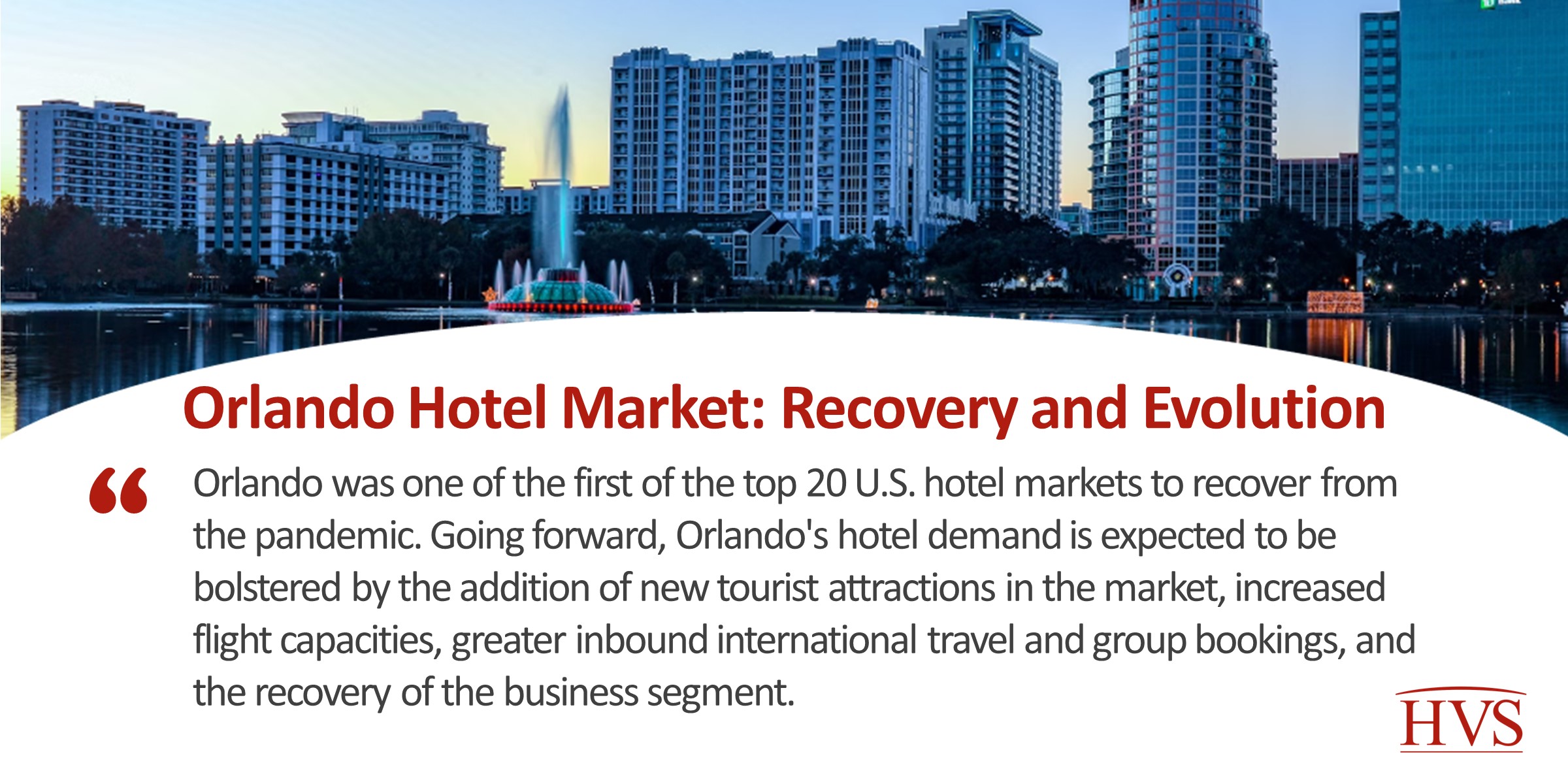
Orlando was one of the first of the top 20 U.S. hotel markets to recover from the pandemic. Going forward, Orlando's hotel demand is expected to be bolstered by the addition of new tourist attractions in the market, increased flight capacities, greater inbound international travel and group bookings, and the recovery of the business segment.
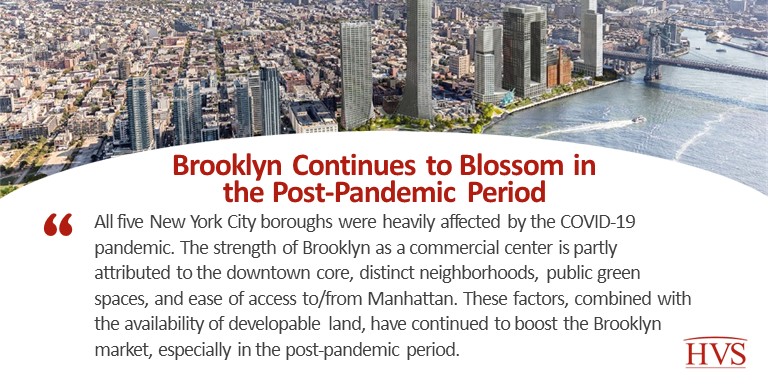
All five New York City boroughs were heavily affected by the COVID-19 pandemic. The strength of Brooklyn as a commercial center is partly attributed to the downtown core, distinct neighborhoods, public green spaces, and ease of access to/from Manhattan. These factors, combined with the availability of developable land, have continued to boost the Brooklyn market, especially in the post-pandemic period.
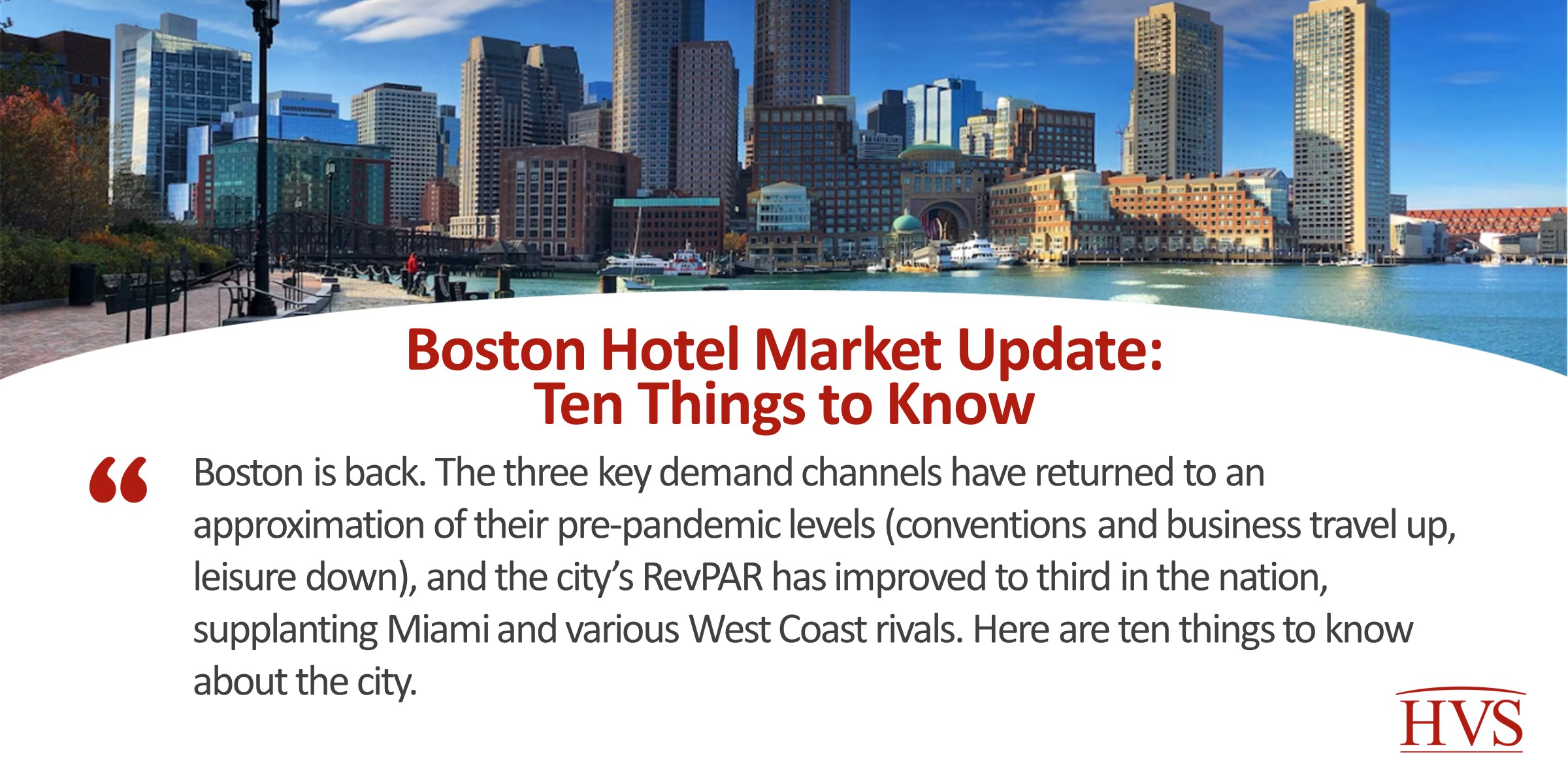
Boston is back. The three key demand channels have returned to an approximation of their pre-pandemic levels (conventions and business travel up, leisure down), and the city’s RevPAR has improved to third in the nation, supplanting Miami and various West Coast rivals. Here are ten things to know about the city.

As 2023 ends, regional HVS leaders across the globe take a look back at how the global hotel industry fared this year. Overall, operating metrics shined brightly, with revenue growth achieved in most global markets, while investment activity cooled. The investment market is expected to improve in 2024.
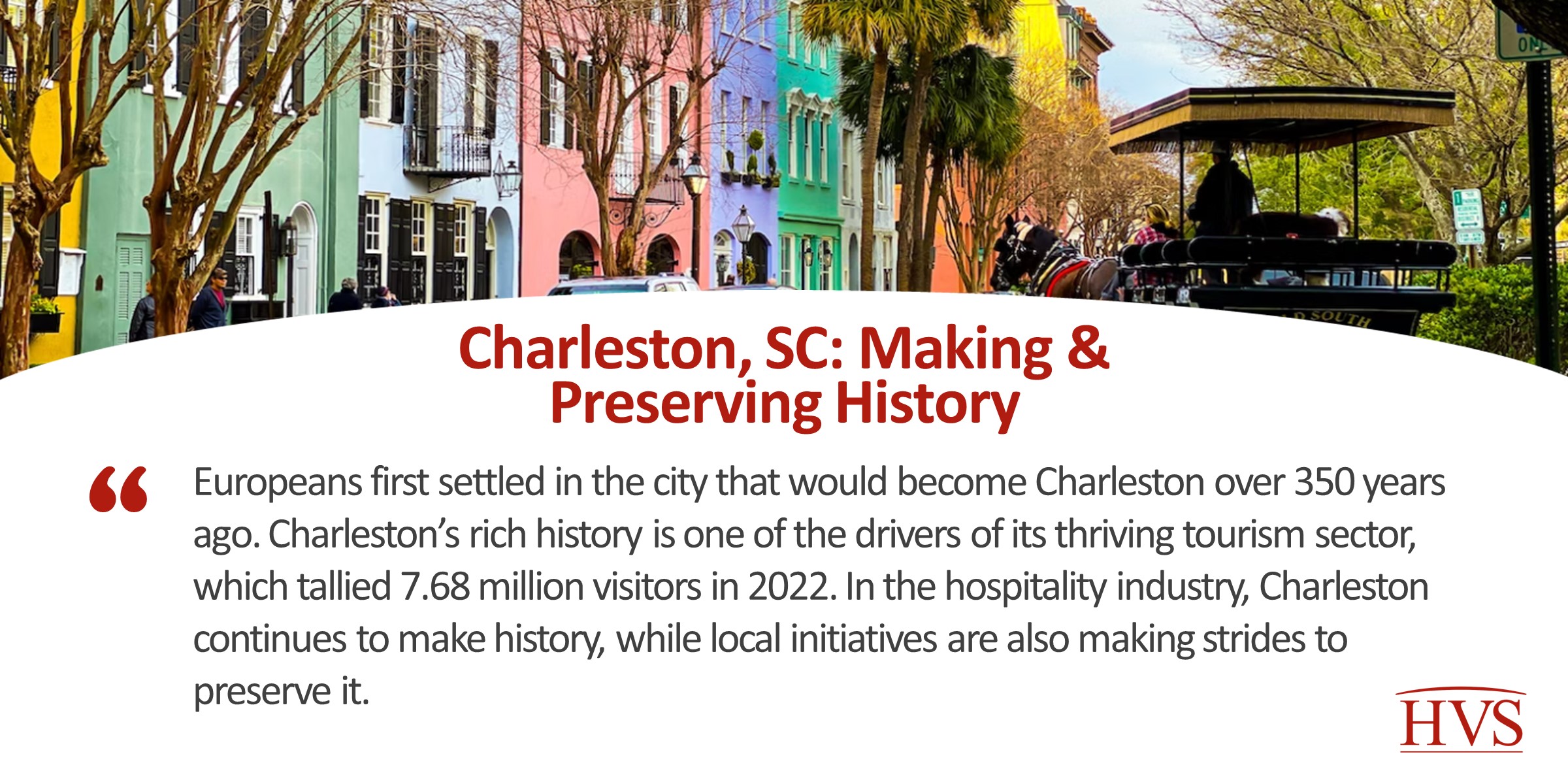
Europeans first settled in the city that would become Charleston over 350 years ago. Charleston’s rich history is one of the drivers of its thriving tourism sector, which tallied 7.68 million visitors in 2022. In the hospitality industry, Charleston continues to make history, while local initiatives are also making strides to preserve it.

Robust demand in urban centers continues to drive Canadian hotel values despite high interest rate environment.